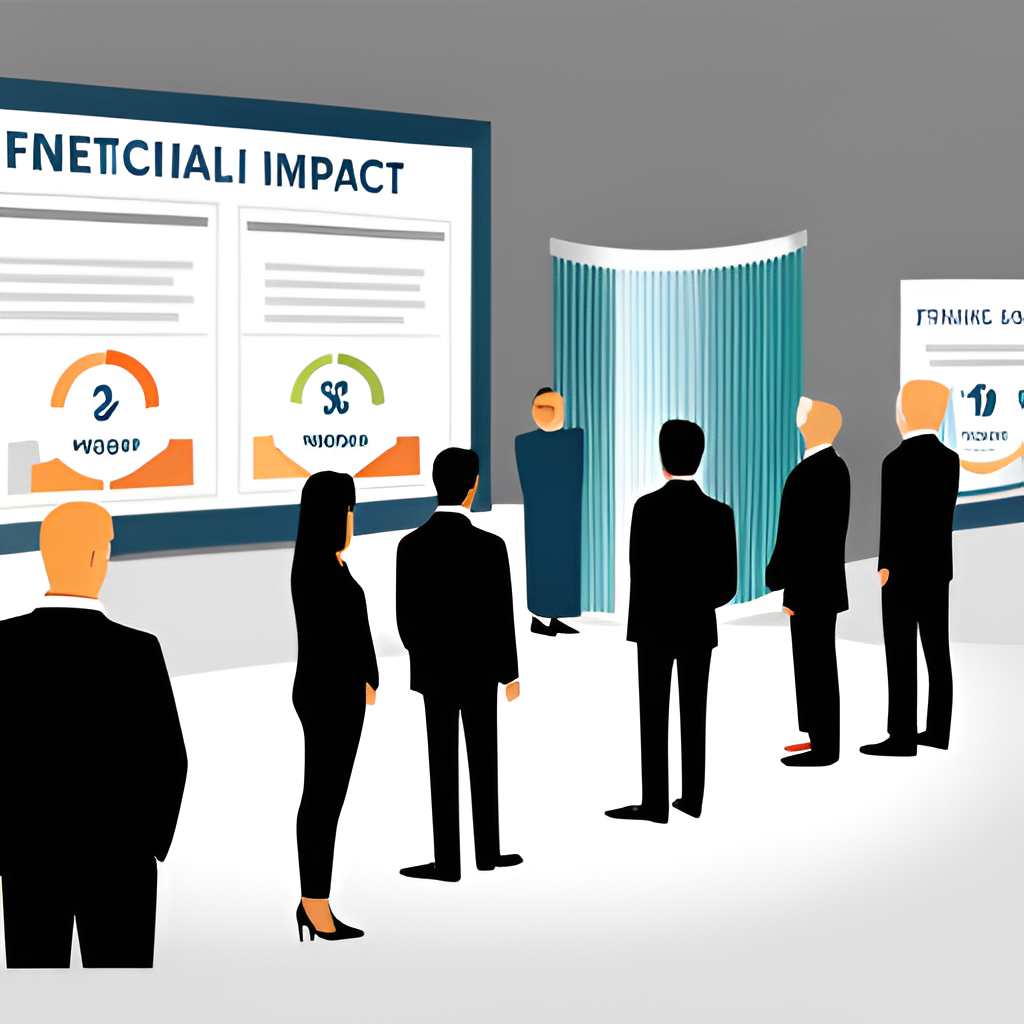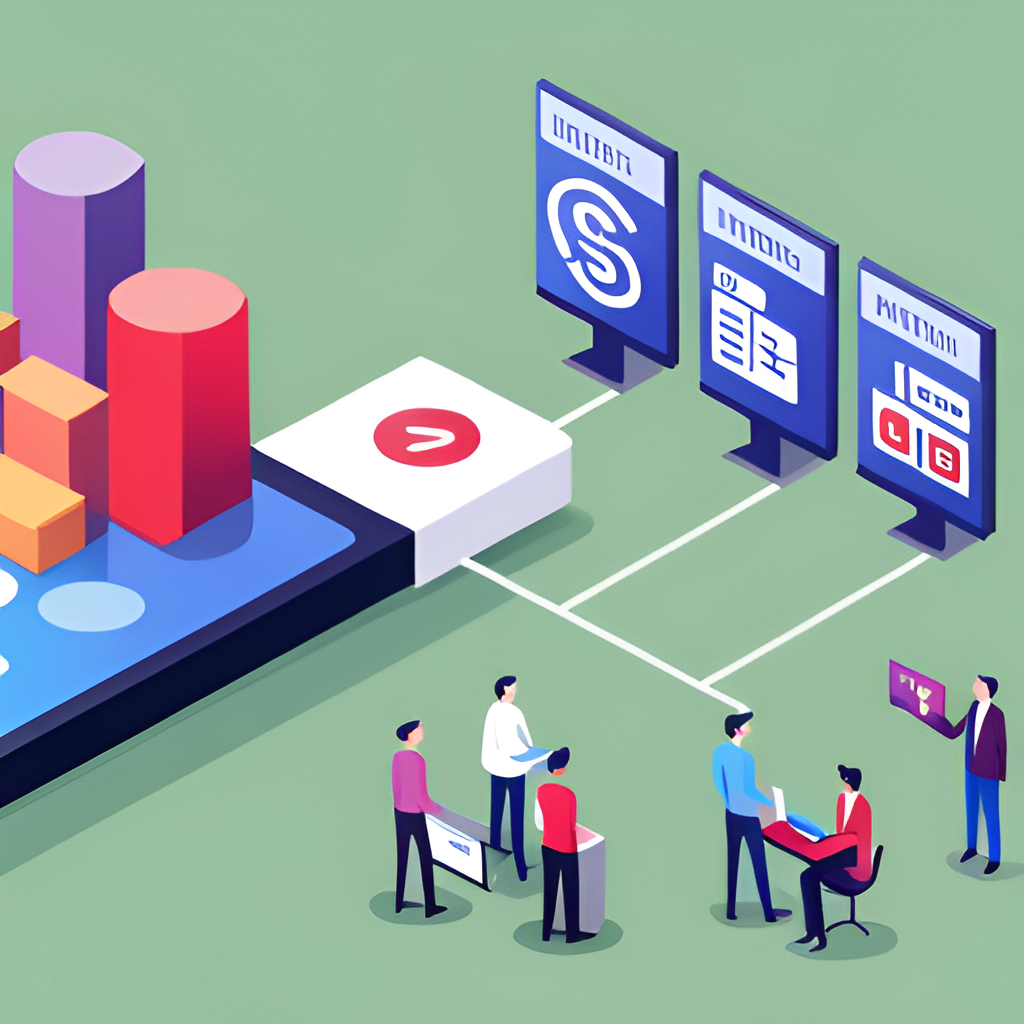Introduction
Accounting has not been exempt from the transformation brought about by financial technology, or FinTech. The world of finance and accounting has seen substantial changes as technology has advanced at a rapid rate. This blog examines the development of fintech and its significant impact on the accounting industry. We will examine significant technology developments, their advantages and disadvantages, and how accountants might adjust to take full use of FinTech.
What is FinTech?

FinTech, short for Financial Technology, refers to the use of technology to improve and automate financial services. It encompasses a wide range of applications, from mobile payments to blockchain technology.
One of the most significant ways in which FinTech has disrupted traditional financial services is through the introduction of peer-to-peer lending platforms. These platforms allow individuals to lend and borrow money without the need for a traditional bank. Another example is the rise of robo-advisors, which use algorithms to provide investment advice and portfolio management services at a fraction of the cost of traditional financial advisors.
The Early Days of FinTech

The roots of FinTech can be traced back to the early days of computing, when banks began using mainframe computers to process transactions more efficiently. However, it wasn’t until the advent of the internet in the 1990s that FinTech really began to take shape. Online banking and trading platforms emerged, allowing customers to manage their finances from the comfort of their own homes. This was a major disruption to traditional financial services and paved the way for further innovation in the industry.
In the years that followed, FinTech continued to evolve rapidly. Mobile banking apps, peer-to-peer lending platforms, and robo-advisors became increasingly popular, providing consumers with greater convenience and accessibility. At the same time, these innovations presented new challenges for regulators and traditional financial institutions, who had to adapt to keep up with the changing landscape.
Key Technological Advancements

a. Cloud Computing: The way financial data is saved, retrieved, and processed has been revolutionized by the rise of cloud-based accounting systems. Accounting professionals may operate remotely because to cloud-based solutions’ real-time collaboration, data security, scalability, and cost-effectiveness.
b. Automation and artificial intelligence (AI): Data input, reconciliation, and reporting repetitive accounting operations have been automated using AI-powered technologies and robotic process automation (RPA). In addition to saving time, this also improves accuracy, lowers the possibility of human mistake, and frees up accountants to concentrate on higher-value tasks like analysis and planning.
c. Big Data Analytics: Accounting professionals may use big data analytics to learn important information about financial trends, consumer behavior, and risk management thanks to the enormous volume of data collected every day. Proactive planning, enhanced forecasting, and superior financial reporting are made possible by data-driven decision-making.
d. Blockchain Technology: A distributed ledger technology known as blockchain promotes increased efficiency, security, and transparency in financial transactions. It has the power to change industries including supply chain management, fraud detection, and auditing. Blockchain-based smart contracts can automate and enforce compliance, obviating the need for middlemen and the accompanying expenses.
The Impact of FinTech on Accounting

FinTech has had a significant impact on the field of accounting, transforming the way businesses manage their finances. Some are
- Increased Productivity: FinTech solutions automate laborious procedures, cut down on paperwork, and provide users access to financial data instantly. Tasks may be finished more quickly by accountants, which increases production, lowers expenses, and improves efficiency.
- Accurate Financial Reporting: Accounting process automation reduces the chance of mistakes, resulting in accurate financial reporting. Quicker decision-making and greater compliance with accounting rules and regulations are made possible by the availability of real-time data.
- Better Decision-Making: FinTech solutions provide accountants access to robust analytics features that let them glean insightful information from financial data. Better company outcomes result from using these insights to guide strategic decision-making, risk assessment, and forecasting.
- Enhanced Security: FinTech solutions place a high priority on data security and include reliable authentication and encryption processes. This lowers the possibility of data breaches, fraud, and illegal access, protecting private financial data.
However, FinTech also presents some challenges for accountants, and they are:
- Data Privacy and Protection: While FinTech has many advantages, it also raises questions regarding data security and privacy. To secure sensitive financial data, accountants must verify compliance with data protection laws and implement strong security measures.
- Skill Set Requirements: As FinTech advances, accountants must acquire new abilities to use technology efficiently. To remain relevant in the digital age, they must improve their data analytics, digital literacy, and agility.
- Integration Issues: Integrating FinTech solutions with current accounting systems is frequently necessary for implementation. Overcoming compatibility concerns, data transfer, and personnel training may be necessary for this. To achieve a seamless transition, a well-planned implementation strategy is essential.
Examples of FinTech in Accounting

Blockchain technology is one instance of fintech in accounting. Blockchain is a digital ledger that securely and openly records transactions. By offering a tamper-proof record of financial transactions that can be viewed by several parties in real time, it has the potential to revolutionize accounting. Some significant accounting companies have already embraced this technology, and it is anticipated that it will spread much farther in the future.
Automated bookkeeping is another illustration of fintech in accounting. With this technique, financial transactions are automatically categorized and reconciled using software, requiring less manual data entry and improving accuracy. Additionally, it enables real-time financial reporting, which offers companies insightful data about their financial health. With the advancement of technology, a lot of accounting companies are now providing automated bookkeeping services to their clients, and this trend is anticipated to last.
Conclusion
In conclusion, accounting has been significantly impacted by the development of FinTech. As we’ve seen, FinTech has impacted conventional financial services and brought up fresh innovations that are altering how accounting is carried out.
Automation is one of the main advantages of FinTech in accounting, since it may save time and minimize mistakes. But it also comes with difficulties, like the need for new abilities and possibly job loss. Accounting professionals need to be aware of these developments and adjust as necessary.
Know More: Click Here

Thanks for Sharing
Insightful